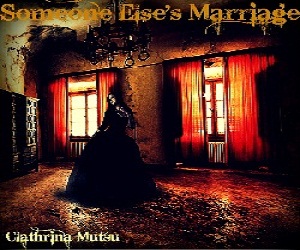The Happiest Medium Review by guest contributors Anjali Koppal and Saurabh Paranjape
It has been a rocky decade for America’s relationship with the Muslim world, and while we have heard the voices of everyone from politicians and pundits to ‘Islam experts’ and firebrand evangelicals about the motivations, implications and myriad other ‘-ations’ of the conflict, the thoughts and feelings of the average Muslim American immigrant from these troubled areas has been largely missing from popular culture. In The Domestic Crusaders, writer Wajahat Ali tries to bridge this gap between the people and their stereotypes. Unfortunately, in his enthusiasm to tackle multiple interesting issues, Ali fails to create a cohesive, engaging play.
Crusaders looks into the life of a Pakistani-American family, taking a deep dive into the complex inter-family dynamics between immigrant parents and their American born children. There’s the parents: Khulsoom, the loving, sometimes overbearing mother (played energetically by Deepti Gupta who is the life of the play, and for whose theatrics I blame more the writing than her performance), and Salman, the ever disappointed father (a lacklustre Imran Javaid). And then the kids: the Islam shunning, ‘Americanized’ eldest son (Kamran Khan), the Islam embracing daughter (Monisha Shiva), and the apple of his parents’ eye, Ghafur (Adeel Ahmed). Along with a grandfather who holds dark secrets from his past life in the subcontinent (Abbas Zaidi), the family churns through an amazingly diverse set of political and socio-economic issues over the course of day’s reunion.
If there is ever an issue you imagined South Asians talk about, trust that it is given lip service here. So there is an emotional monologue about the India-Pakistan partition, a plethora of comical nods to South Asian family stereotypes, a heated discussion about fundamentalism, and even a single, awkwardly jammed in, line about 9/11 (And this is just a sampling). Carrying us from one subject to another is a rather uneven roller coaster of emotions; characters who’ve just had a good cry abruptly break into sitcom-ish jokes and, without pausing for breath, follow up immediately with loud melodramatic arguments. It also doesn’t help that the occasional voiceover, mostly used to present how the family in question perceives ‘white’ America’s opinion of them, are so ludicrously over the top and condescending, that even-keeled audiences might feel dirty for having sat through them. For two people who can typically be seen yelling at the TV any time Hollywood misrepresents South Asian culture, we never thought we would be silently yelling “white people don’t talk like that!”
The largely South Asian audience (including yours truly) found plenty of in-jokes and stereotypes to laugh about, but it all feels quite hollow. It is a noble attempt no doubt, but the end result is, unfortunately, a loud, caricaturish over-simplification of a very complex set of issues.




{ 0 comments… add one now }